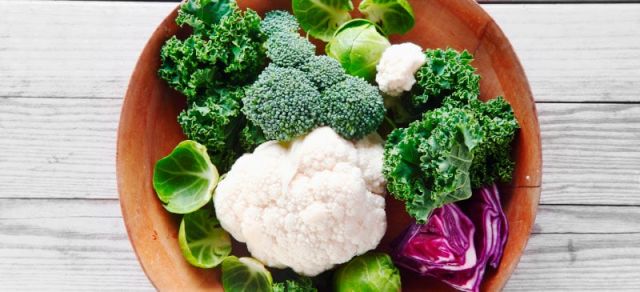[ad_1]
Cancer is recognized worldwide to be a major health problem affecting millions of people each year. Cancer is a systemic disease with various causes, some of which include a poor diet, toxin exposure, nutrient deficiencies and to some extent genetics.
One extremely important way to prevent and/or treat cancer is nutritionally, through eating a nutrient-dense diet full of cancer-fighting foods and avoiding things that are known to increase cancer risk.
No single food can protect against cancer, but eating more foods that fight it will help reduce the risk of developing the disease.
While specific foods themselves can’t cure or definitively prevent cancer, certain nutrients in plant foods, fruits, legumes, vegetables, as well as other nutritious foods, have been shown to be effective in helping to reduce the risk of developing cancer.
Berries:
Regularly consuming berries may help reduce your risk of cancer. Berries, such as blueberries, strawberries and blackberries are high in antioxidant and anti-inflammatory compounds like flavonoids and anthocyanins that help protect against cellular damage and inhibit the production of compounds that cause inflammation, which may help lower cancer risk.
Citrus Fruits:
Citrus fruits like oranges, grapefruits, and lemons contain nutrients such as fiber, carotenoids, folate, vitamin C, and flavonoids. These nutrients can provide antioxidant and anti-inflammatory effects in the body, which can lower your cancer risk.
Apples and Pears:
Including apples and pears in your diet may offer protection against some cancers, including colorectal cancer, breast cancer, and lung cancer. These fruits are high in nutrients and plant compounds known to have anticancer properties, such as vitamin C and flavonoid antioxidants.
Green leafy Vegetables:
Like fruits, vegetables are high in cancer-fighting nutrients and phytochemicals. A diet high in vegetables, including leafy greens, onions, and cauliflower, may help reduce cancer risk.
Cruciferous Vegetables:
Cruciferous Vegetables include broccoli, cauliflower, cabbage, and leafy greens such as kale, arugula, and Swiss chard. These vegetables have been shown to provide impressive protective effects against several health conditions, including cancer. They’re concentrated in sulfur-containing phytochemicals called glucosinolates. The body converts glucosinolates into molecules called isothiocyanates, which have strong anticancer properties.
Allium Vegetables:
Allium vegetables, including garlic, onions, and leeks contain plant compounds that may help protect against certain cancers. For example, garlic and onions are high in anticancer substances such as flavonoid antioxidants, organosulfur compounds, and vitamin C, which may inhibit cancer cell proliferation and protect cells from oxidative damage.
Legumes:
Legumes, including beans and lentils, are high in nutrients that have cancer-protective properties, such as fiber and minerals. Legumes also contain bioactive substances such as phenolic compounds, which can help reduce inflammation and protect against cellular damage, which adds to their cancer-protective effects.
Herbs and Species:
Herbs and spices like turmeric, rosemary, oregano, thyme, and ginger contain plant compounds that may help protect against cancer. For example, turmeric contains curcumin, which is a polyphenol that has powerful anticancer properties. Curcumin has been shown to induce apoptosis, or programmed cell death, in cancer cells and suppress signaling pathways involved in the invasion and spread of cancer cells.
Foods to limit or avoid:
While following a diet high in minimally-processed, nutrient-dense foods and regularly incorporating foods known to have anticancer effects may help lower your risk of developing certain cancers, it’s also important to limit your intake of foods linked to increased cancer risk.
Although it’s usually not necessary to completely avoid the following foods and drinks, limiting your intake and replacing them with healthier alternatives could help lower your risk of developing cancer and several other health conditions, like heart disease.
- Fried foods
- Ultra processed foods
- Fast food
- Food and drinks high in added sugar
- Alcohol
- Red and processed meat
- Refined carbs
[ad_2]

